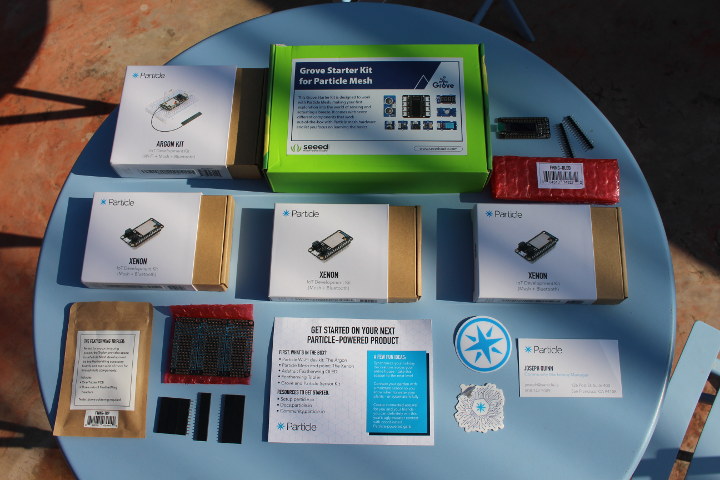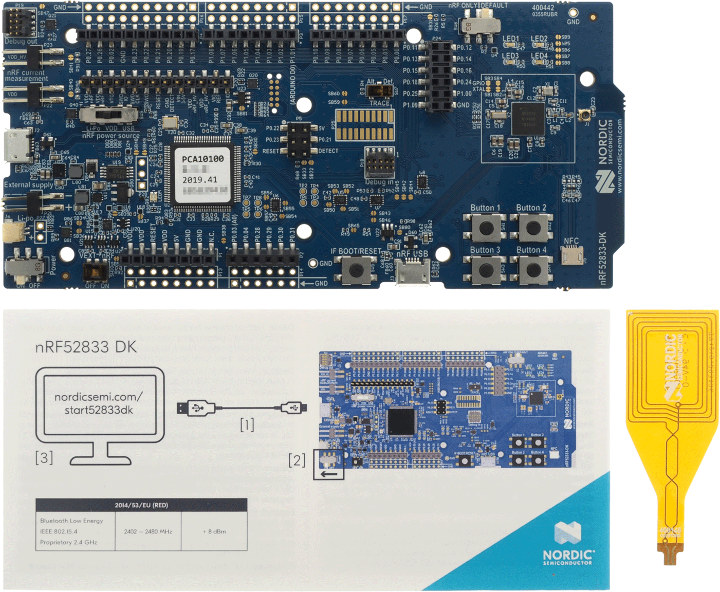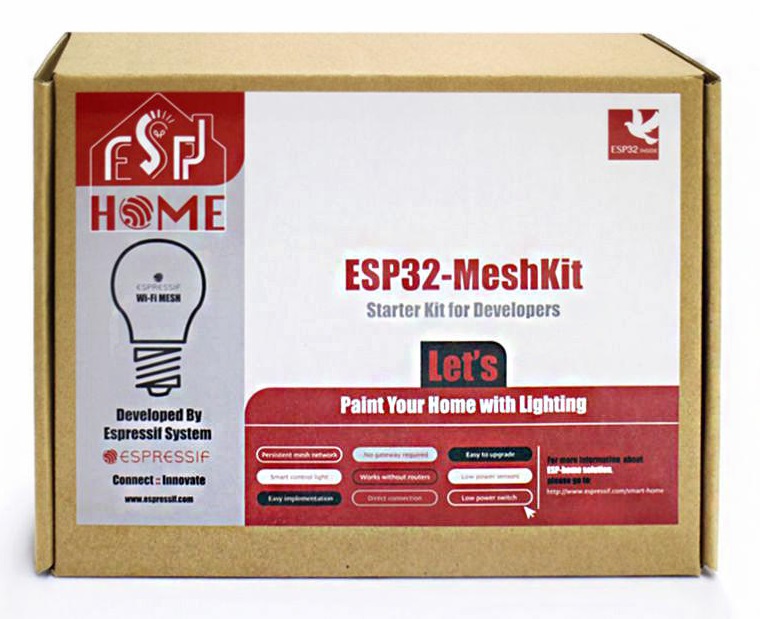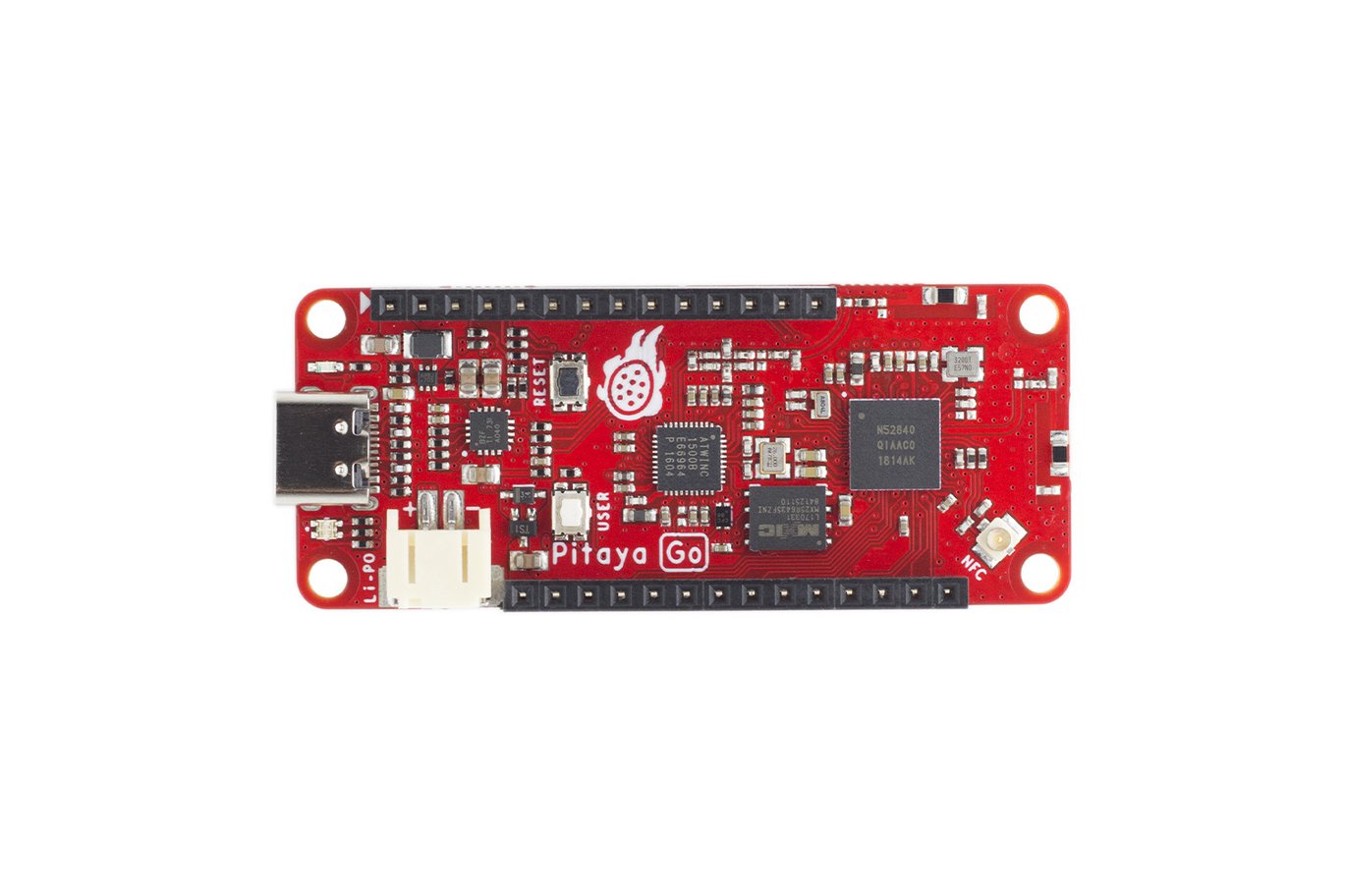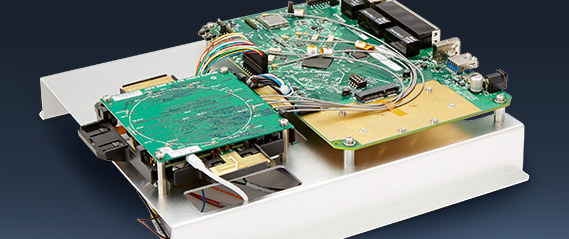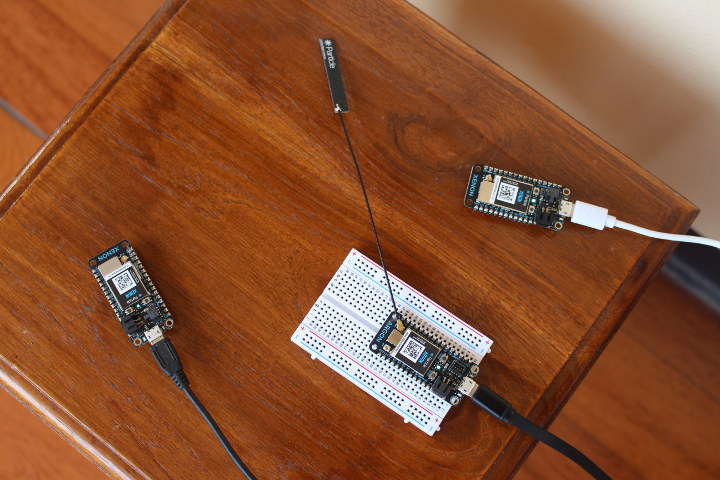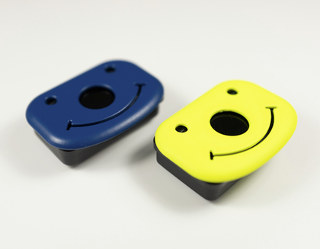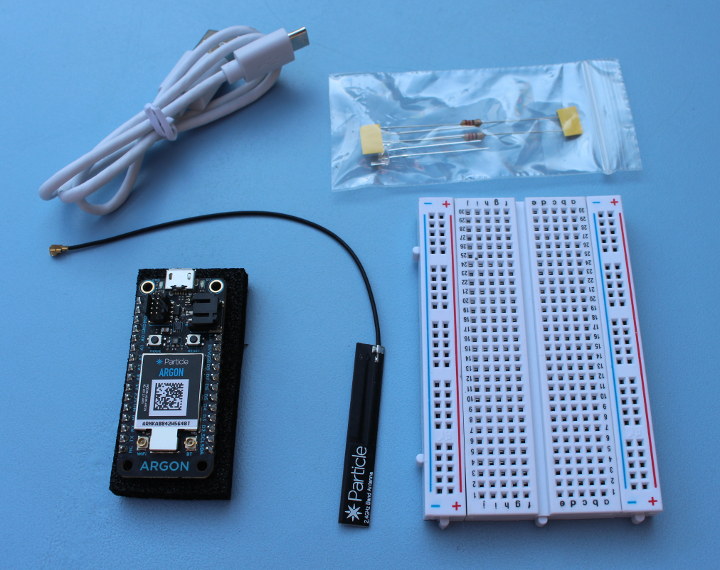In early 2018, Particle introduced three nRF52840 Bluetooth 5 boards, also supporting the company’s Particle Mesh technology, and selling for as low as $9. Later that year, the company send me what they call Particle Mesh IoT development kit with several of those boards to get started with their mesh networking solution. That’s what I’m offering as the 6th prize of this giveaway week. With this kit on hand, I wrote a Particle Mesh networking getting started guide showing how to configure the board in Particle.io dashboard, and easily push a new program to multiple Xenon Bluetooth 5 + Mesh boards using an Argon WiFi & Bluetooth 5 + Mesh as the gateway. I’ll give away the full kit shown in the top picture which includes: The Argon kit (ESP32 WiFi + Bluetooth + Mesh) A Grove and Particle Sensor Kit with various modules and a shield An Adafruit Featherwing […]
Nordic Semi nRF52833 WiSoC Supports Bluetooth 5.1 Direction Finding, Works up to 105ºC
Nordic Semiconductors had added a new member to their RF52 multi-protocol wireless SoCs with nRF52833 that supports Bluetooth 5.1 direction finding and can operate in a wider temperature range between -40ºC and +105°C. The company also introduced nRF52833 DK development kit for Bluetooth Low Energy, Bluetooth mesh, Thread, Zigbee (802.15.4), and 2.4GHz proprietary applications, and some companies have already announced nRF52833 modules. Nordic Semi nRF52833 Bluetooth 5.1 SoC Key features and specifications: MCU Core – Arm Cortex-M4F @ 64 MHz Memory – 128 KB RAM Storage – 512 KB Flash Connectivity Bluetooth 5.1 @ 2 Mbps/1 Mbps/500 kbps/125 kbps 802.15.4 (Thread/Zigbee) @ 250 kbps 2.4 GHz proprietary @ 2 Mbps / 1 Mbps NFC-A tag TX power – Programmable from +8 dBm to -20 dBm in 4 dB steps Sensitivity Bluetooth 5: -103 dBm at 125 kbps; -98 dB at 500 kbps; -95 dBm at 1 Mbps; -92 dBm at […]
ESP32-MeshKit is a Development Kit for ESP32 Mesh Networking
The ESP8266 was a jewel in its peak, it ruled the maker’s world in the need for creating a low-cost WiFi module. Being Arduino compatible also furthered its glory then the ESP32 came in. ESP32 offered so much more than the ESP8266, and most importantly it was also affordable. With support for Bluetooth and WiFi, ESP32 was to open a new frontier for the development of Internet of Things applications. A major drawback of the affordable ESP32 was the lack of official support of mesh network for the chip, something that was easily possible with the ESP8266. Mesh network allows you to build a network of nodes that can communicate with each other, self heal, and many more possibilities. But thankfully, back in 2018, Espressif Systems released the ESP Mesh Development Framework (ESP-MDF) which sits on top of the IoT Development Framework (ESP-IDF), the official development framework for the chip. […]
Pitaya Go is an IoT development board with multi-protocol wireless connectivity
One of the challenges in starting a new IoT project is the question of what connectivity to use. Depending on the nature of a project, there are several wired and wireless connectivity options that can be used to power a project and ensure it’s a success. We have WiFi, Bluetooth, Zigbee, Zwave, LoRa, ZigFox, Thread, NB-IoT, 3G/4G, and others. You can use from anyone, but which one to use is another thing because most development board only support 1 or 2 of those. Well, with the introduction of the Pitaya Go, you don’t have to worry so much about that decision. The Pitaya Go is an IoT development platform with multiprotocol wireless connectivity built-in. The Pitaya Go is based on the Nordic’s high-end multiprotocol SoC nRF52840 and the Microchip’s extremely low power Wi-Fi network controller ATWINC1500B. The nRF52840 SoC is the most advanced member of the nRF52 Series SoC family, and it […]
Qualcomm Mesh Networking DevKit Supports Amazon AVS
The Qualcomm Mesh Networking Development Kit for Amazon AVS enables integration of Amazon Alexa Voice Services into mesh Wi-Fi systems. A somewhat recent blog post on Amazon Developer website explains the devkit is the first ever Amazon-qualified reference design for a mesh WiFi system with Alexa built-in. The reference platform is based on the Qualcomm IPQ4019 SoC, includes a rectangular 4-microphone array, far-field audio processing algorithms for noise suppression, acoustic echo cancellation, wake word engine, and the AVS Device SDK. Qualcomm Mesh Networking DevKit specifications: WiSoC – Qualcomm IPQ4019 quad core Arm Cortex-A7 processor @ 717 MHz with SIMD DSP, WiFi 5; 40 nm process technology System Memory – 1GB DDR3L RAM Storage – eMMC flash and microSD card Display I/F – LCD interface Connectivity WiFi Standards: 802.11ac Wave 2, 802.11ac, 802.11p, 802.11n Bands: 2.4 GHz, 5 GHz Peak speed: 1.733 Gbps Channel Utilization: 20/40/80 MHz, 5/10/20/40 MHz MIMO Configuration: […]
Particle Mesh Networking Review – Part 2: Getting Started Guide with Argon & Xenon
I’ve recently received a Particle Mesh IoT Development Kit with one Argon WiFi + Mesh (802.15.4) board acting as gateway, three Xenon Mesh boards, and various sensors and accessories. I’ve already showcased the hardware in the first part in the review, so in this post I’ll post my experience getting started with Particle Mesh networking using the kit. Beside the kit, you’ll need a few micro USB cables, a mobile phone running Android or iOS, a reliable Internet connection (more on that later), and a host PC for programming and debugging potential issues. Setting Up Particle Argon & Xenon boards First we’ll need to configure / setup the boards. Go to https://setup.particle.io to login or create an account if you don’t already have one, and you should be brought the following page. Select Mesh, and you’ll be asked to setup a gateway first. Any of the boards from Particle Mesh […]
PyGo Wearable Devices Create LoRa Mesh Networks (Crowdfunding)
Pycom has made some interesting IoT boards running MicroPython in the past starting with WiFi capable WiPy in 2015, and followed by various others supporting various wireless standard including Bluetooth, LoRa, Sigfox, and NB-IoT with LoPy and Fipy. The company launched all their boards via crowdfunding campaigns, and they are now back on Kickstarter for their PyGo plug-n-play wearable devices creating PyMesh networks with up to 12km range between nodes, and managed using Pylife mobile app. Typical use cases include basic connectivity (e.g. messaging) in remote areas without cellular access, and assets / pets / kids location tracking, There are two version of PyGo: PyGo1 with mesh networking only, and PyGo2 that adds cellular network access. Pygo hardware specifications: SoC – Espressif Systems ESP32 dual core WiFi 4 + BLE SoC System Memory – 64 Mbit (8MB) RAM Storage – 8MB flash Display – 128×36 OLED display Connectivity PyMesh up […]
Particle Mesh IoT Development Kit Review – Part 1: Unboxing
Back in February of this year, Particle introduced three low cost IoT development boards based on Nordic Semi nRF52840 wireless chip supporting “Particle Mesh” networking based on the 802.15.4 radio in the chip and OpenThread implementation of Thread IoT communication protocol. The company recently announced they were now shipping the kits pre-ordered earlier this year, and released two IoT development tools based on Node-RED and Visual Studio Code. Particle contacted me as well as to find out whether I was interested in reviewing their latest WiFi / Bluetooth / Mesh kit, and I’ve just received the bundle, which comes with a bunch of items, so I decided to write an unboxing post first to have a first look at the hardware, before playing with it in one or two weeks. Particle Mesh IoT Development Kit Bundle Unboxing That’s what I got from UPS… From top left to bottom right: The […]


